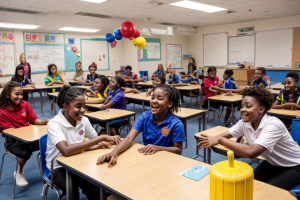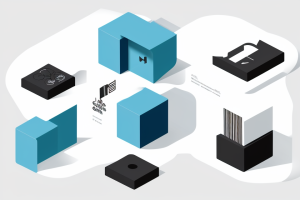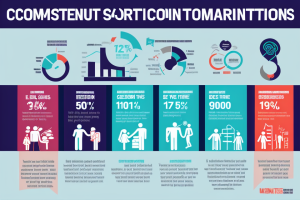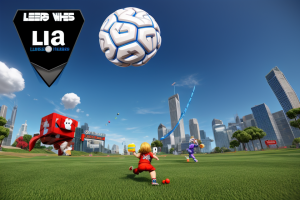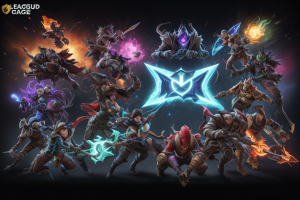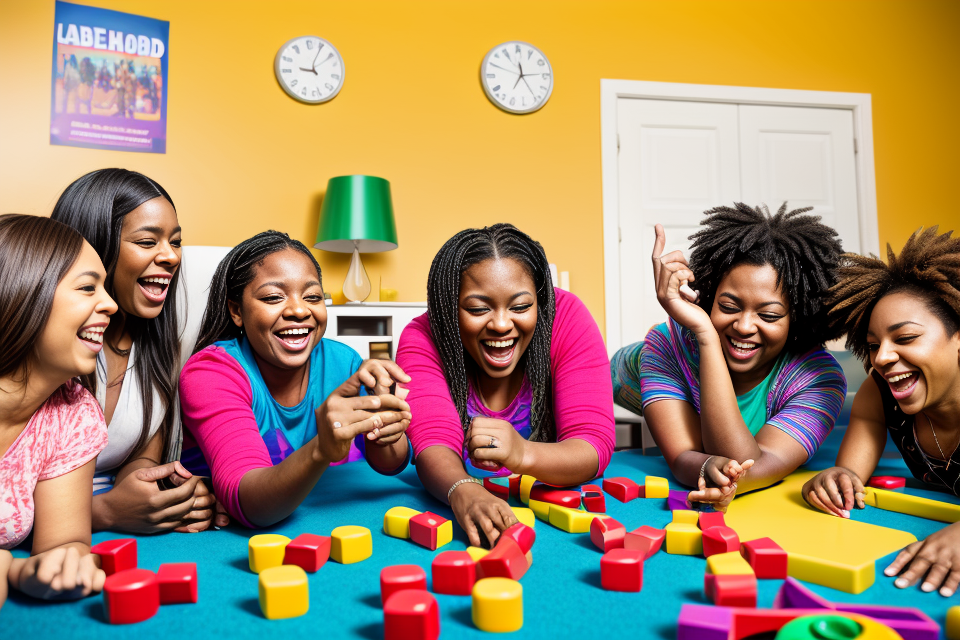
Building camaraderie and teamwork is essential for any organization or group looking to achieve success. A strong team is one that works together, communicates effectively, and supports each other. In this article, we will explore some fun games and activities that can help foster camaraderie and teamwork among your team members. From trust-building exercises to team-building challenges, these activities are designed to help your team members get to know each other better, work together more effectively, and have fun along the way. So, let’s dive in and discover how to build a strong, cohesive team through teamwork and camaraderie.
Establishing Trust and Communication
Icebreaker Games
Icebreaker games are designed to help people get to know each other better, establish trust, and improve communication skills. They are a great way to kick off a team-building event or to start a new project where team members will be working closely together.
Here are three icebreaker games that are popular among teams:
- Two Truths and a Lie
In this game, each person takes turns telling the group three statements about themselves: two that are true and one that is false. The other members of the team then have to guess which statement is the lie. This game encourages people to share personal information about themselves and helps to build trust by revealing shared experiences or interests.
- Would You Rather
This game involves asking people to choose between two options and then explaining why they made their choice. For example, “Would you rather go skydiving or bungee jumping?” This game helps to break down barriers and encourages people to share their thoughts and opinions in a safe and non-judgmental environment.
- The Mirror Game
In this game, one person starts by making a movement or sound, such as clapping their hands or stomping their foot. The person to their right then mirrors that movement or sound, and the game continues around the group. This game encourages people to pay attention to each other and to respond quickly and accurately to each other’s actions. It also helps to build trust by relying on others to follow your lead.
Team-Building Exercises
Team-building exercises are an effective way to promote trust and communication among team members. These exercises can help break down barriers, build rapport, and improve problem-solving skills. Here are three team-building exercises that can be incorporated into a team-building program:
- The Tower Challenge: In this exercise, teams must work together to build a tower using a set of materials, such as blocks or cardboard. The challenge is to build the tallest tower possible within a set time limit. This exercise requires teams to work together to problem-solve, communicate, and collaborate to achieve a common goal.
- The Blindfold Maze: In this exercise, one team member is blindfolded and must navigate through an obstacle course while the other team members provide verbal directions. This exercise promotes trust, communication, and teamwork, as the blindfolded team member must rely on their teammates to guide them through the maze.
- The Obstacle Course: In this exercise, teams must work together to navigate through an obstacle course, which may include physical challenges such as climbing walls, crossing balance beams, or negotiating an obstacle course. This exercise promotes teamwork, communication, and problem-solving skills, as teams must work together to overcome obstacles and reach the finish line.
Encouraging Collaboration and Cooperation
Collaborative Games
Collaborative games are an excellent way to foster teamwork and camaraderie among team members. These games are designed to encourage communication, cooperation, and problem-solving skills. Here are some examples of collaborative games that can be played by teams:
- Puzzles and Brain Teasers: Puzzles and brain teasers are great games for improving problem-solving skills and fostering collaboration. These games require team members to work together to solve a problem or complete a task. For example, a team can work together to solve a jigsaw puzzle or complete a brainteaser.
- Group Storytelling: Group storytelling is a fun and interactive game that encourages team members to work together to create a story. One person starts telling a story, and then the next person continues the story, and so on until the story is complete. This game encourages creativity, communication, and cooperation among team members.
- Collaborative Drawing: Collaborative drawing is a game that requires team members to work together to create a drawing. One person starts drawing, and then the next person continues the drawing, and so on until the drawing is complete. This game encourages creativity, communication, and cooperation among team members.
By playing these collaborative games, team members can learn to work together effectively, communicate effectively, and develop a sense of camaraderie and trust. These games can be played during team-building activities, training sessions, or as a fun activity during breaks.
Group Problem-Solving Activities
Group problem-solving activities are an excellent way to build camaraderie and teamwork among members. These activities encourage collaboration and cooperation by requiring participants to work together to achieve a common goal.
Some examples of group problem-solving activities include:
- Escape Rooms: An escape room is a game where participants are locked in a room and must solve puzzles and riddles to escape. This activity requires communication, collaboration, and critical thinking skills.
- Scavenger Hunts: A scavenger hunt is a game where participants must find specific items or solve clues to progress through the game. This activity encourages teamwork and communication, as well as creative problem-solving skills.
- Mystery Games: A mystery game is a game where participants must solve a crime or mystery by collecting clues and piecing together evidence. This activity requires teamwork, critical thinking, and communication skills.
Overall, group problem-solving activities are a fun and effective way to build camaraderie and teamwork among members. By encouraging collaboration and cooperation, these activities can help improve communication and problem-solving skills, as well as foster a sense of trust and teamwork among participants.
Promoting a Sense of Belonging and Community
Social Games
Social games are a great way to bring people together and foster a sense of community. These games are designed to encourage interaction and communication among team members, and they can be a fun and engaging way to build camaraderie.
Trivia Nights
Trivia nights are a popular social game that can be played by teams. They involve answering questions on a variety of topics, such as history, science, sports, and pop culture. Trivia nights can be a great way to test your knowledge and learn new things, while also having fun with your teammates.
Themed Parties
Themed parties are another fun social game that can be played by teams. They involve dressing up and participating in activities that fit a specific theme, such as a 1920s speakeasy party or a superhero-themed party. Themed parties can be a great way to let loose and have fun with your teammates, while also showing off your creativity and sense of style.
Group Cooking or Baking Activities
Group cooking or baking activities are a fun and interactive way to build camaraderie among team members. These activities involve working together to prepare a meal or baked goods, which can be a great way to bond and learn new skills. Whether you’re making a fancy dinner or just some simple snacks, group cooking or baking activities can be a fun and rewarding way to spend time with your teammates.
Community Service Projects
Volunteering at Local Events
Participating in local events is a great way to bring a team together while also giving back to the community. By volunteering at a local event, team members can work together to set up and break down the event, as well as assist with various tasks throughout the day. This can include things like handing out flyers, directing attendees, or even running games and activities. Not only does this provide an opportunity for team members to work together and build camaraderie, but it also helps to support the local community and make a positive impact.
Organizing a Charity Drive
Organizing a charity drive is another great way for a team to come together while also making a difference in the community. This can include things like collecting food or clothing for local shelters, or organizing a toy drive for children in need. By working together to plan and execute the charity drive, team members can build strong relationships and a sense of camaraderie. Additionally, the act of giving back to the community can also help to foster a sense of purpose and fulfillment among team members.
Environmental Clean-up Initiatives
Participating in environmental clean-up initiatives is a great way for a team to work together while also making a positive impact on the environment. This can include things like organizing a litter clean-up in a local park or beach, or participating in a river or beach clean-up. By working together to clean up the environment, team members can build strong relationships and a sense of camaraderie. Additionally, the act of giving back to the environment can also help to foster a sense of environmental stewardship and responsibility among team members.
Encouraging Accountability and Responsibility
Leadership Games
Leadership games are designed to help individuals develop leadership skills while fostering a sense of accountability and responsibility within a team. These games aim to promote collaboration, communication, and problem-solving abilities, as well as enhance decision-making and critical thinking skills. By participating in leadership games, team members can improve their ability to work together effectively and efficiently.
- The Trust Fall
The Trust Fall is a classic leadership game that involves participants falling backwards into the arms of their teammates. This activity encourages trust and teamwork, as the person falling must rely on their teammates to catch them safely. The Trust Fall also promotes communication and body language, as the person falling and the catchers must work together to ensure a successful outcome. - The Leadership Challenge
The Leadership Challenge is a game that requires participants to work together to complete various tasks and challenges. Each challenge is designed to test different leadership skills, such as decision-making, problem-solving, and communication. This game is ideal for teams that want to develop their leadership skills while having fun. - The Team Captain Challenge
The Team Captain Challenge is a game that requires participants to work together to solve a series of challenges and puzzles. Each challenge is designed to test different leadership skills, such as decision-making, problem-solving, and communication. The Team Captain Challenge is ideal for teams that want to develop their leadership skills while having fun. This game is also a great way to identify potential leaders within a team.
Role-Playing Scenarios
- Crisis Management Simulations
- Crisis management simulations are designed to help team members practice responding to emergency situations. This type of role-playing scenario can be used to train employees in areas such as disaster response, cybersecurity breaches, or even workplace conflicts.
- In a crisis management simulation, team members work together to make decisions, solve problems, and implement solutions to a simulated crisis situation. This helps them develop critical thinking skills, improve communication, and learn how to work effectively under pressure.
- Business Strategy Games
- Business strategy games are another type of role-playing scenario that can be used to build camaraderie and teamwork. These games are designed to simulate real-world business scenarios, such as launching a new product, managing a budget, or expanding a business.
- In a business strategy game, team members work together to make decisions, allocate resources, and implement strategies to achieve a common goal. This helps them develop problem-solving skills, improve communication, and learn how to work effectively in a team environment.
- Negotiation Role-Playing
- Negotiation role-playing scenarios are designed to help team members practice negotiation skills in a safe and controlled environment. This type of scenario can be used to train employees in areas such as sales, procurement, or conflict resolution.
- In a negotiation role-playing scenario, team members take on the roles of buyers and sellers, and work together to negotiate a deal. This helps them develop communication skills, learn how to listen effectively, and practice assertiveness and persuasion techniques.
Celebrating Success and Achievements
Reward Systems
When it comes to building camaraderie through teamwork, reward systems play a crucial role in motivating and recognizing team members for their hard work and dedication. By implementing group incentives, team trophies and awards, and recognition ceremonies, organizations can foster a culture of collaboration and appreciation that drives success and boosts morale.
Group Incentives
Group incentives are a powerful tool for promoting teamwork and encouraging collaboration. These incentives can take many forms, such as bonuses, gift cards, or even extra days off. By offering rewards to the entire team rather than just individual members, organizations can reinforce the idea that success is a collective effort. This approach also encourages team members to support and rely on one another, which can help build stronger relationships and improve overall performance.
Team Trophies and Awards
Team trophies and awards are another effective way to recognize and celebrate team success. These tangible symbols of achievement can serve as a constant reminder of past victories and motivate team members to strive for future accomplishments. Whether it’s a trophy, plaque, or certificate, team trophies and awards can help reinforce the importance of collaboration and camaraderie.
Recognition Ceremonies
Recognition ceremonies are an excellent way to celebrate team success and show appreciation for team members’ hard work. These events can range from small gatherings to formal banquets, and can include speeches, presentations, and even team-building activities. By taking the time to acknowledge and celebrate team achievements, organizations can demonstrate their commitment to building camaraderie and fostering a positive work environment.
Overall, reward systems are a crucial component of building camaraderie through teamwork. By implementing group incentives, team trophies and awards, and recognition ceremonies, organizations can create a culture of collaboration and appreciation that drives success and boosts morale.
End-of-Project Celebrations
End-of-project celebrations are a great way to acknowledge the hard work and dedication of team members. Themed parties can be a fun and engaging way to celebrate the completion of a project. The theme can be based on the project itself, such as a medieval-themed party for a project related to history, or it can be a more general theme, such as a 1920s-themed party.
Potlucks
Potlucks are a great way to bring team members together and celebrate their successes. Each team member can bring a dish to share, and the group can enjoy a variety of foods and celebrate together. This type of celebration can be especially effective for teams that work remotely, as it provides an opportunity for team members to connect in a social setting.
Group Outings
Group outings can be a fun and rewarding way to celebrate the completion of a project. This could include activities such as a team dinner at a nice restaurant, a day at an amusement park, or a weekend getaway. These outings provide an opportunity for team members to bond and celebrate their successes outside of the work environment.
FAQs
1. What are some fun games and activities that can encourage camaraderie and teamwork?
There are many games and activities that can help build camaraderie and teamwork among your team. Some examples include:
* Team-building exercises, such as trust falls or obstacle courses
* Group brainstorming sessions, where everyone can contribute their ideas and opinions
* Team scavenger hunts, where participants have to work together to find hidden objects
* Group problem-solving exercises, where participants have to work together to solve a puzzle or riddle
* Team cooking or baking challenges, where participants have to work together to prepare a meal or dessert
2. How can I make sure that everyone feels included and valued during team-building activities?
It’s important to make sure that everyone feels included and valued during team-building activities. One way to do this is to create a safe and supportive environment where everyone feels comfortable sharing their thoughts and ideas. You can also make sure that everyone has a chance to participate and contribute, and that no one is left out or excluded.
Another way to make sure that everyone feels included is to mix up the teams for different activities. This can help ensure that everyone has a chance to work with different people and form new connections. You can also encourage everyone to share their strengths and weaknesses, and to offer support and encouragement to their teammates.
3. How often should we do team-building activities?
The frequency of team-building activities will depend on your team’s needs and preferences. Some teams may benefit from regular team-building activities, while others may only need them occasionally. It’s important to find a balance that works for your team and to make sure that team-building activities are not overwhelming or too frequent.
One way to determine the frequency of team-building activities is to ask your team for feedback and suggestions. You can also consider incorporating team-building elements into regular meetings or events, rather than scheduling separate team-building sessions.
4. How can I measure the success of team-building activities?
Measuring the success of team-building activities can be challenging, as it depends on many factors, such as the goals of the activity and the specific outcomes you are looking to achieve. Some ways to measure the success of team-building activities include:
* Conducting surveys or feedback sessions with participants to see how they felt about the activity and whether they felt it helped build camaraderie and teamwork
* Observing how participants interact with each other during and after the activity
* Reviewing any data or metrics that you collected before and after the activity, such as productivity or collaboration levels
* Asking participants to reflect on what they learned and how they plan to apply it in their work
Overall, the most important measure of success is whether team-building activities are helping to build stronger relationships and improve collaboration within your team.

